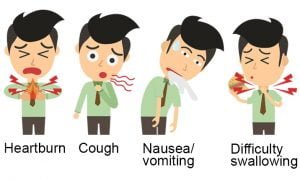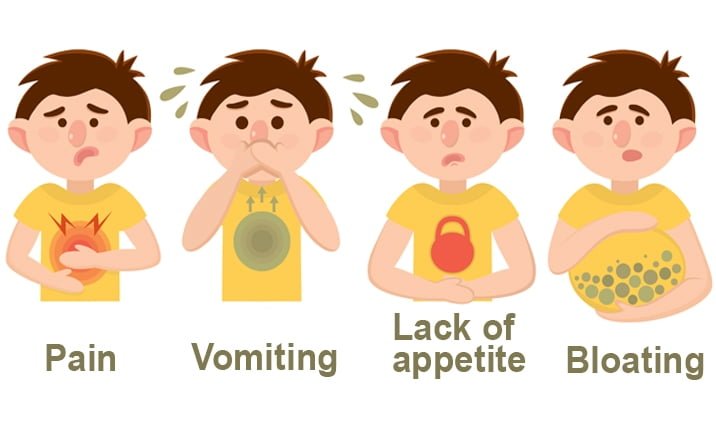Presentation: Realistic Clinical Case Study
Presentation: Realistic Clinical Case Study
Content Requirements
You will create a PowerPoint presentation with a realistic case study and include appropriate and pertinent clinical information that will be covering the following:
- Subjective data: Chief Complaint; History of the Present Illness (HPI)/ Demographics; History of the Present Illness (HPI) that includes the presenting problem and the 8 dimensions of the problem; Review of Systems (ROS)
- Objective data: Medications; Allergies; Past medical history; Family history; Past surgical history; Social history; Labs; Vital signs; Physical exam.
- Assessment: Primary Diagnosis; Differential diagnosis
- Plan: Diagnostic testing; Pharmacologic treatment plan; Non-pharmacologic treatment plan; Anticipatory guidance (primary prevention strategies); Follow up plan.
- Other: Incorporation of current clinical guidelines; Integration of research articles; Role of the Nurse practitioner
SUBMISSION INSTRUCTIONS:
- The presentation is original work and logically organized, formatted, and cited in the current APA style, including citation of references.
- The presentation should consist of 10-15 slides and less than 5 minutes in length.
- Incorporate a minimum of 4 current (published within the last five years) scholarly journal articles or primary legal sources (statutes, court opinions) within your work. Journal articles and books should be referenced according to APA style (the library has a copy of the APA Manual).
Reading reflection Jewish Leadership
Reading reflection Jewish Leadership
Book: Leadership on the line by. Linksy & Heifitz
What do Linksy & Heifitz mean by “being on the balcony” versus “being on the dance floor”? How does one move back and forth between the balcony and the dance floor? Why is this an important part of leadership? Can you think of a time when you were evaluating a situation “on the balcony” or “on the dance floor”?
2. Linksy & Heifitz talk about finding out where people are at (starting on page 62), which includes being a good listener. What connections can you make between what they say about listening, and what Rabbi Jonathan Sacks teaches us about listening in his chapter “To lead is to listen” (p.251-255)
Requirements: 350- 500 words
After a Lakewood IT Management Team Meeting
After a Lakewood IT Management Team Meeting
After a Lakewood IT management team meeting, they decided there is a need for even more information about the the IT service solutions you researched last week. The management team asked for more detail about the solutions you identified as the best selections. Revisit the solutions you selected in week 2’s paper in order to compare and contrast, at least five, features and functions in each solution. In addition, be sure to identify risks associated with implementing each recommended solution. Lastly, make sure to gather and include the capital costs and any on-going operational costs for the hardware/software associated with each solution.
The paper must not exceed 5 pages of content (the title page, abstract [if required], reference pages, figures/tables, and appendices are not content pages). In addition, the paper must use: After a Lakewood IT management team meeting, they decided there is a need for even more information about the the IT service solutions you researched last week. The management team asked for more detail about the solutions you identified as the best selections. Revisit the solutions you selected in week 2’s paper in order to compare and contrast, at least five, features and functions in each solution. In addition, be sure to identify risks associated with implementing each recommended solution. Lastly, make sure to gather and include the capital costs and any on-going operational costs for the hardware/software associated with each solution.
The paper must not exceed 5 pages of content (the title page, abstract [if required], reference pages, figures/tables, and appendices are not content pages). In addition, the paper must use:
Common Digestive Conditions
Common Digestive Conditions
 Common Digestive Conditions? In everyone’s life, they must have experienced a digestion disorder, whether it is a lingering gastrointestinal ailment requiring lifestyle change or is a meal that doesn’t agree with our stomach. According to Peyskensn & Penaloza (2017), digestive problems are extremely common in people afflicting one in five people.
Common Digestive Conditions? In everyone’s life, they must have experienced a digestion disorder, whether it is a lingering gastrointestinal ailment requiring lifestyle change or is a meal that doesn’t agree with our stomach. According to Peyskensn & Penaloza (2017), digestive problems are extremely common in people afflicting one in five people.
Gastroesophageal Reflux Disease (GERD)
When stomach bile or acid flows into the food pipe causing lining irritation, it causes gastroesophageal. Many people experience heartburn, but when it occurs regularly, it indicates a sign of gastroesophageal disease. The disease mostly presents as heartburn which, when uncontrolled, can lead to lining wearing of the esophagus, leading to bleeding. Poddar (2019) notes that the condition can also cause extreme chest pains, which sometimes are mistaken for heart attack.
The lower esophageal sphincter (LES) opens to allow food in the stomach and closes to stop stomach acids from flowing back into the esophagus in a normal digestion. However, when the LES is weak and relaxed, it lets the stomach acids flow back in the throat, which causes heartburn hence GERD. One can control the disease by taking two hours to rest after a meal before bedtime. However, over-the-counter medication can help reduce the occasional heartburns, but chronic ones need prescriptions and sometimes surgery.
Chronic Diarrhea
Another form of Common Digestive Conditions is Diarrhea. It can be termed as loose stool, which is impossible to ignore. Diarrhea that happens more than twice and lasts for a week can be a medical concern. It can be caused by different things, including the inability of the body to absorb food, infection, an endocrine disorder, or a disease, for example, irritable bowel syndrome. Sometimes, some medications cause diarrhea as a side effect. However, chronic diarrhea may indicate a more serious problem that needs more professional medical attention. The underlying cause of diarrhea should be treated as quickly as possible, which needs to eliminate some foods and medicine and improve hygiene.
Chronic Constipation
Also Chronic Constipation is a Common Digestive Condition. It occurs when people get fewer than three bowel movements in a week or longer where the stools are hard and difficult to pass. Some other symptoms of constipation include straining when passing stool and feeling as though there is a blockage in the rectum. There are no evident research results for the cause of chronic constipation.
However, colon or rectum blockage, nerve problems around the colon or rectum, difficulty with elimination muscles, and hormonal changes in the body can cause chronic constipation. Although occasional constipation is normal, some people experience chronic constipation that interferes with their normal daily life. The condition can be treated by taking lots of water and fluids, managing stress, staying active, taking foods low in fiber, and creating regular bowel movements.
Gastroenteritis
Another Common Digestive Conditions is Gastroenteritis. It is a short-term illness sometimes called the stomach flu caused by a bacterial or viral infection and swelling of the digestive system. The disease has symptoms like diarrhea, fever, stomach pains, crumbing, vomiting, nausea, and headache. The most common cause of the disease is a virus, including rotavirus and norovirus. Other causes of the disease can be through contact with an infected person, consuming contaminated food, and being unhygienic. The best way to treat the infection is by taking plenty of fluids to avoid dehydration, maintaining hygiene to prevent the spread of the infection. As for children, standard vaccination of rotavirus should be followed.
Stomach Ulcers as a Common Digestive Conditions
Moreover, Common Digestive Conditions include stomach Ulcers. Ulcers are breaks or holes formed at the lining of the upper parts of the small intestine or the stomach that contact enzymes stomach acids. The stomach has acids that help in food digestion and protects the stomach against microbes. Also, the stomach produces a thick layer of mucus which protects the body tissues from the acid. However, when the protective mucus becomes inactive and ineffective, the acid starts damaging the body tissues causing ulcers (Almurshidi, & Abu-Naser, 2017). The disease has some symptoms which include, indigestion, causing stomach discomforts, heartburn, and GERD.
Other symptoms include bloating, burping, nausea, and vomiting, and sometimes weight loss. One can prevent the disease by taking many fruits and vegetables, foods high in soluble fiber, probiotics, and not consuming alcohol frequently. It can be treated by protecting what causes more acid in the body. However, surgical treatments can be done when one experiences consistent bleeding, re-occurring ulcers, and lack of bowel movements.
In conclusion, the digestive system works as a tool for breaking down food. However, if some parts of the system are not working properly, digestive disorders may develop, such as chronic constipation, irritable bowel syndrome (IBS), ulcers, gallstones, or diarrhea. Some digestive disorders, when not treated, can cause serious problems.
Common Digestive Conditions References
Almurshidi, S. H., & Abu-Naser, S. S. (2017). Stomach disease intelligent tutoring system.
Peyskensn, L., & Penaloza, A. (2017). Common digestive symptoms as a rare presentation of prostatic cancer. New Horizons in Clinical Case Reports, 1, 21.
Poddar, U. (2019). Gastroesophageal reflux disease (GERD) in children. Pediatrics and international child health, 39(1), 7-12.





